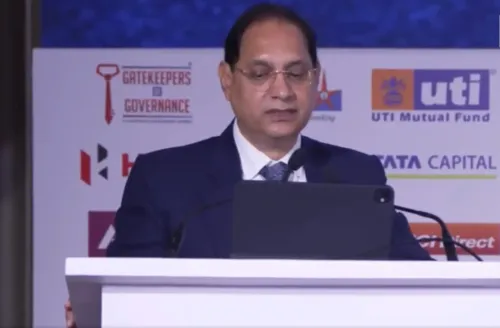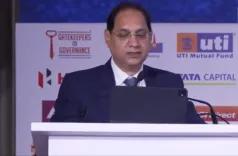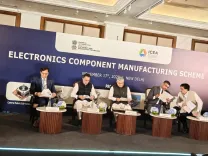Is India Rapidly Transitioning from Vision to Action in Electronics Manufacturing?

Synopsis
Key Takeaways
- India is shifting from assembly to local manufacturing.
- Government support is crucial for sector growth.
- ECMS aims to reduce imports and strengthen supply chains.
- High-skilled jobs will be created across multiple sectors.
- India is positioning itself as a global electronics hub.
New Delhi, Nov 17 (NationPress) The momentum in India’s electronics manufacturing sector is growing robustly as the government and industry shift from policy formulation to practical implementation, stated India Electronics and Semiconductor Association (IESA) President Ashok Chandak on Monday.
During a session that celebrated the achievements of the Electronics Components Manufacturing Scheme (ECMS) in the national capital, Chandak emphasized that India is swiftly evolving from merely assembling finished products to developing essential components and materials domestically.
"The momentum indicates that India’s shift from policy to production is now clearly evident," Chandak remarked at the event attended by Union Minister Ashwini Vaishnaw, Minister of State Jitin Prasada, and MeitY Joint Secretary Sushil Pal.
He also commended the government for sanctioning the second batch of ECMS applications, which amounts to Rs 7,100 crore.
"IESA member companies are among the initial recipients of approvals under the scheme, with numerous additional applications pending," he noted.
Chandak further asserted that India is gradually establishing a solid foundation in electronics component manufacturing, which is vital for curtailing imports, fortifying supply chains, and generating high-skilled employment across various sectors including defense, telecom, EVs, renewable energy, automotive, and consumer electronics.
Industry participants echoed this sentiment, observing that the pace of value addition in electronics has surged significantly in the previous year.
The ECMS initiative is part of a larger framework that encompasses the Electronics Manufacturing PLI, the India Semiconductor Mission for fabs and OSAT units, the Design-Linked Incentive (DLI) scheme, and RDI programmes aimed at research and innovation.
These combined efforts aim to create an integrated value chain — from materials to components, chips to devices, and design to manufacturing.
The latest approvals contribute to the momentum created by the first batch of ECMS projects approved last month. On October 27, the government announced the clearance of seven projects valued over Rs 5,500 crore under the scheme.
These projects include facilities for multi-layer PCBs, HDI PCBs, camera modules, copper-clad laminates, and polypropylene films. Five projects received approval in Tamil Nadu, one in Andhra Pradesh, and one in Madhya Pradesh.
IESA highlighted that with semiconductors, components, and design advancing concurrently, India is steadily emerging as a reliable global hub for electronics manufacturing.
Chandak remarked that the nation is taking decisive steps toward becoming a true “Product Nation” for the global market.









